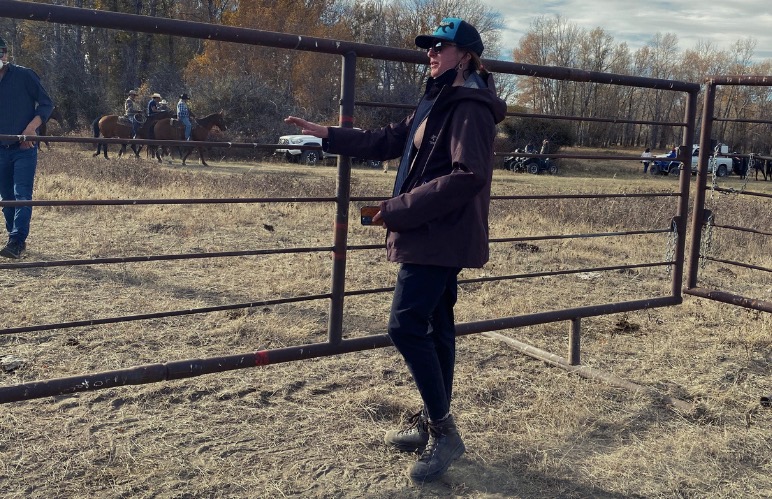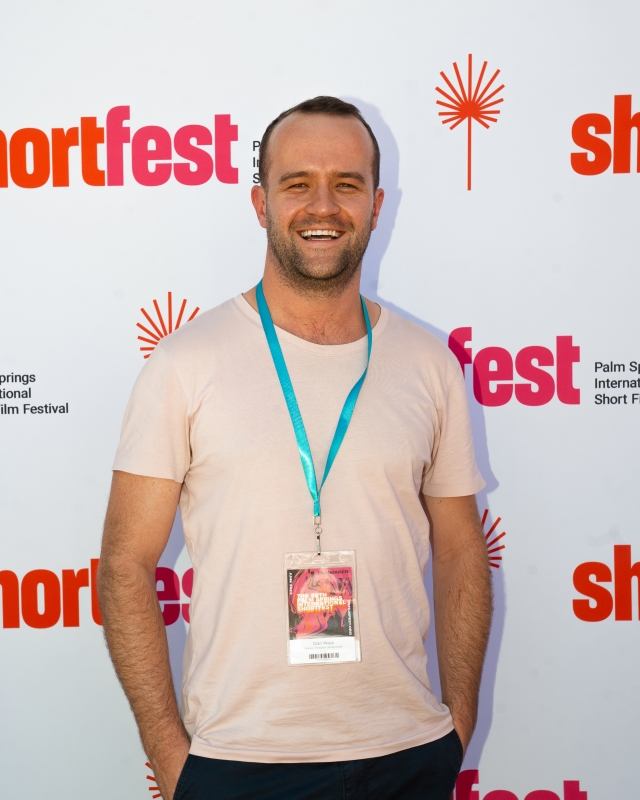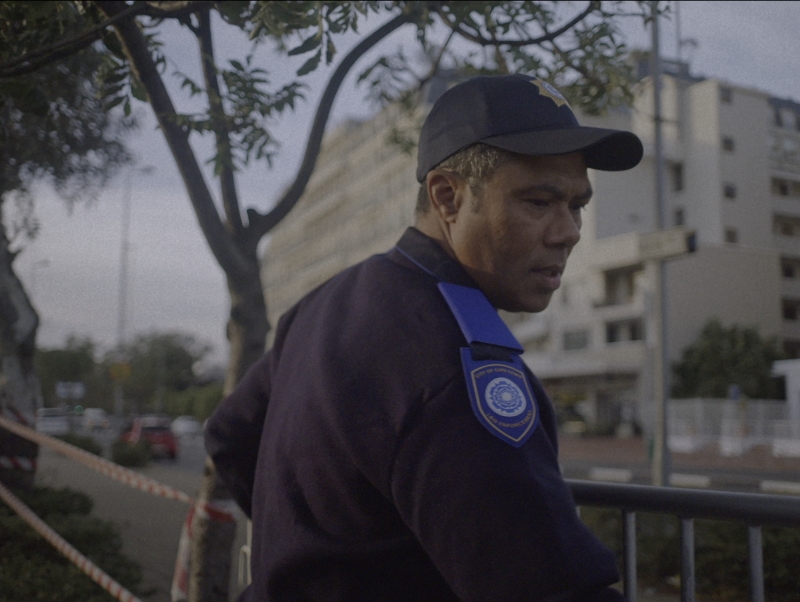|
|
||
|
Pro Tools
FILMFESTIVALS | 24/7 world wide coverageWelcome ! Enjoy the best of both worlds: Film & Festival News, exploring the best of the film festivals community. Launched in 1995, relentlessly connecting films to festivals, documenting and promoting festivals worldwide. Working on an upgrade soon. For collaboration, editorial contributions, or publicity, please send us an email here. User login |
A World Not Ours. Interview with director Mahdi Fleifel
Filmmaker Mahdi Fleifel is writer/director/producer/DOP of the multi award-winning documentary A WORLD NOT OURS (2012), a life tribute and soliloquy dedicated to Mahdi’s hometown Ein el-Helweh, Lebanon. While Mahdi has spent much of his adult life in Denmark, he returned home many times over the last thirteen years documenting family and friends to make this unique memoir. Mahdi begins the film by stating: ‘To me, going to Ein el-Helweh is better than going to Disneyland’. It is hard to imagine why a depressed village in southern Lebanon would be someone’s Happiest Place on Earth; and yet, it is the wellspring of inspiration from which this passionate filmmaker and his poignant oeuvre sprang. Mahdi links the microcosm of the world in which he was raised to the macrocosm of the seemingly ceaseless conflict of the Middle East. It is hard to imagine how a place with so much beauty, history and love of life continues to self-destruct. But despite his best friend’s expressed hopelessness, Mahdi remains hopeful and sees a light at the end of the tunnel. I recently interviewed Mahdi Fleifel. Here is what he had to say:
ME: Was it your father who inspired you to become a filmmaker with all his early home videos? MAHDI: I believe fathers always have a huge impact on their sons, for better or worse. I don't think my father intended for me to become a filmmaker, but seeing him recording all throughout my childhood certainly had an impact on me. In many ways I do feel he is the reason why I became a filmmaker eventually. ME: How old were you when you moved to Denmark? What age were you when you decided you had to become a filmmaker and finish this film? MAHDI: I was nine when my parents left the Middle East and migrated north to Scandinavia. Cinema has always been a big part of my life, I was always watching films as a kid and my appetite grew as I grew older. Eventually in high school I decided to become a filmmaker, and once I was in university I decided to make a film about my parents and the refugee camp. That is 13 years ago now. ME: There must have been hundreds, if not thousands, of hours of footage for the film. How long did it take you to edit down to 93 minutes? MAHDI: We had about 150 hours of footage, all scattered on different formats (Hi8, MiniDV, VHS, HDcam, Super8mm, 16mm). It took us about one year and a half to edit the finished film. ME: Your film has been winning awards at festivals all over the world. How have the people from Lebanon received your film? MAHDI: Yes, the film has screened at a few festivals in Lebanon. Unfortunately, due to the controversial subject matter, the film has not been allowed to pass through censorship. But those who have seen it, loved it and the film has slowly built up a strong following with people debating it in the social media and on blogs etc. We are still trying to find ways to make the film available to people in Lebanon. ME: One of the family members in your film blames the PLO themselves for their situation. And then another one says that the next thing to happen will be that the Israelis will self-destruct. Either way, it is a tragic story where everyone loses somehow. How hard is it to watch the place you come from and your home dissolve into nonbeing? MAHDI: It is never easy to see the people you love go through suffering the way they do. But unfortunately, this seems to be a common thread in human nature. I have never been very optimistic about the situation in the Middle East and find the whole thing rather bleak. It is very hard for most people to comprehend the current situation there, but in reality what we see and the constant conflict there is a proxy war run by the US and the West on one hand and Russia/China on the other. I'm probably banalizing things here, but that's how I see it in simple terms. ME: Your best friend at one point says in the film: "'I want to go on a mission and blow myself up, man. I bet most of the guys who blew themselves up felt the same way I do. No future, no work, no education. No nothing... I'm convinced that's why thy blew themselves up." These are such powerful words of utter despair and hopelessness. Do you think there is any hope left for Palestine or is this the beginning of the end? MAHDI: There has to be hope. Hope is the only thing that keeps us alive, and makes it worthwhile to wake up in the morning and get on with your day. ME: Your best friend always wears a T-shirt with the number 7 on it. Is there some esoteric symbolism here? MAHDI: It was a funny coincidence this T-shirt. No symbolic meaning whatsoever. I found it in a market in London and brought it for my friend as a present. He loved it and wore it non-stop while I was filming. All chance. ME: You recently screened your film in Cluj at TIFF. And then this summer your film screened (and won the prize for the Best Documentary) at Guanajuato International Film Festival. How was that and what festivals are next on the circuit? MAHDI: Cluj was probably the least interesting festival for me to present the film. Somehow, the film disappeared in the huge chaotic program of the festival. There is a list of about 40 or so upcoming festivals and it's been a tremendous run for the film so far, with more than twenty awards so far and lots of great reviews. We are all very proud of it. ME: You are currently living in Paris for residence. What will you do now after you have completed such a masterpiece? MAHDI: It's flattering of you to call it a masterpiece. I just have to try and make a better film next time.
‘A World Not Ours’ held its world premier at the 2012 Toronto International Film Festival.
Interview by Vanessa McMahon
View film trailer here: http://www.youtube.com/watch?v=QDIyM8XTWUo View film's official website here: http://nakbafilmworks.gb.net/
Filmmaker Mahdi Fleifel at GIFF, 2013. 29.09.2013 | Vanessa McMahon's blog Cat. : A World Not Ours. Interview with director Mahdi Fleifel Interviews
|
LinksThe Bulletin Board > The Bulletin Board Blog Following News Interview with EFM (Berlin) Director
Interview with IFTA Chairman (AFM)
Interview with Cannes Marche du Film Director
Filmfestivals.com dailies live coverage from > Live from India
Useful links for the indies: > Big files transfer
+ SUBSCRIBE to the weekly Newsletter Deals+ Special offers and discounts from filmfestivals.com Selected fun offers
> Bonus Casino
User imagesAbout Vanessa McMahonThe EditorUser contributions |



























 McMahon Vanessa
McMahon Vanessa 


